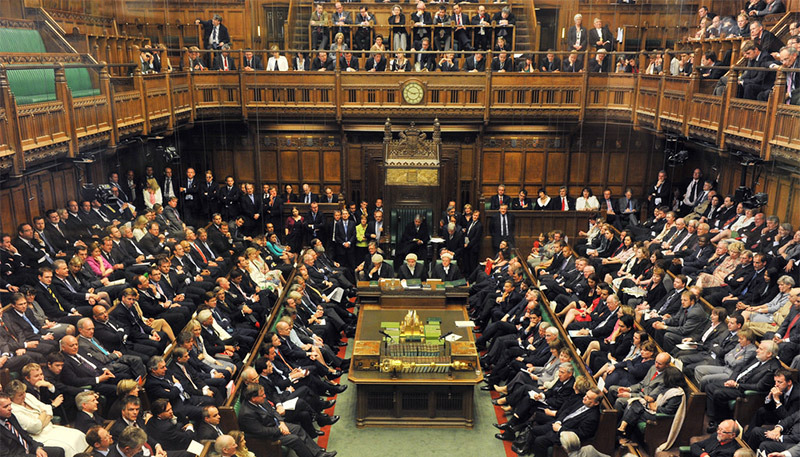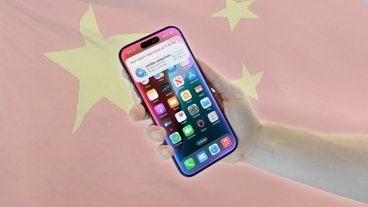The U.K. House of Commons has passed a limited version of its Investigatory Powers Bill after removing controversial elements that would have demanded that manufacturers like Apple to weaken or build backdoors into their encryption products.
According to report by Bloomberg, the bill passed despite some remaining opposition over concerns related to privacy and civil rights. The law grants spy agencies the power to continue bulk surveillance and the use of malware to break into the devices of suspected criminals.
However, the most objectionable components of the bill— related to proposals that would have weakened encryption— were stripped following intense criticism from civil liberties groups and technology companies.
Apple led a critical challenge of the legislation last winter, arguing in an eight page letter to the U.K parliamentary committee that "the creation of back doors and intercept capabilities would weaken the protections built into Apple products and endanger all our customers."
Apple's chief executive Tim Cook warned of "dire consequences" if the law passed with language weakening device encryption.
While noting that it cooperates with the U.K. and law enforcement to "catch criminals and save lives," Apple insisted that legal efforts to weaken device encryption on iPhones, iPads and Macs would fail to stop criminals seeking to hide, because those individuals could simply continue using other encryption technologies that are freely available to anyone.
"There are hundreds of products that use encryption to protect user data, many of them open-source and beyond the regulation of any one government," Apple's letter stated. "By mandating weakened encryption in Apple products, this bill will put law-abiding citizens at risk, not the criminals, hackers and terrorists who will continue having access to encryption."
Apple's global fight against overreaching governments
Cook took the same stance in the United States, where he maintained a very public stand against efforts by the Federal Bureau of Investigations to use the courts to require the company to develop a broken version of iOS that would enable law enforcement to bypass a variety of security mechanisms in order to hammer away at encrypted iPhones.
The FBI later withdrew its motions to force Apple to unlock devices related to a New York drug-related case as well as developing software to break into a company device assigned to dead terrorist shooter in San Bernardino.
In parallel, encryption-weakening legislation proposed in the U.S. Congress was withdrawn this spring after political support evaporated as the public increasingly sided with Apple's stance on privacy and civil rights.
In April, Apple's general counsel Bruce Sewell testified at a hearing of the U.S. House Energy and Commerce that the company has twice refused demands from Chinese authorities to turn over source code over the past two years.
The testimony came in response to unsupported accusations by Captain Charles Cohen, a state law enforcement official from Indiana, who suggested that Apple hands over data to the Chinese government but was simply unwilling to help U.S. law enforcement access private data.
Representative Anna Eshoo, a Democrat from California, refuted the Captain's suggestion and forced Cohen to admit that his only source of information was media reports.
A variety of other technology companies, including Facebook, Google's Alphabet, Microsoft, Twitter and Yahoo have joined Apple in lobbying against legislation that could undermine customers' faith in their products and brands.
 Daniel Eran Dilger
Daniel Eran Dilger







-m.jpg)






 Charles Martin
Charles Martin
 Christine McKee
Christine McKee
 Wesley Hilliard
Wesley Hilliard
 Malcolm Owen
Malcolm Owen
 Andrew Orr
Andrew Orr
 William Gallagher
William Gallagher
 Sponsored Content
Sponsored Content








10 Comments
"after" is very different than "because of"
Eric Berne pointed out in his 'Games People Play', that 'criminals' are amongst the least studied of all the tribes, why? because the ones who are in jail are overwhelmingly not the actual criminals that psychologists would like to study, they are just the ones who get caught, in other words, the fools. The point I'm labouring to make is that only faux terrorists are going to use an iPhone if it has a built in back door, serious genuine dangerous terrorists will simply use the best safest encryption that it is possible to buy.
Huh, that was weird.
I had this page open in a tab, hit refresh and the picture changed from the Canadian House of Commons to the UK House of Commons.
And the comments pointing out the mistake have been deleted.
It feels a bit disingenuous to make corrections like that.
We all make mistakes, it's not a big deal to own it. In fact it shows bold honesty and generates trust with the readers.
It's preferable to me when a website says thank you to the poster who mentions the mistake, updates the article with an [Updated] or [U] and leaves the forum intact.